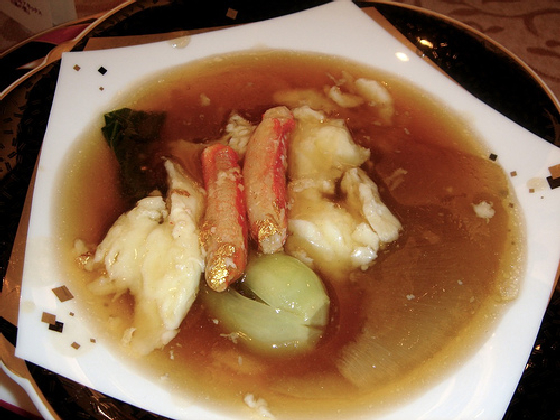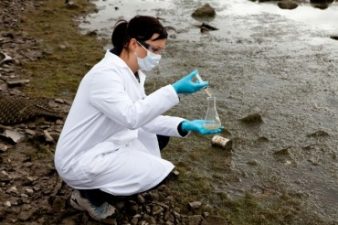Traditional Chinese medicine differs greatly from western medical practice in the fact that it largely utilizes natural remedies to cure patients, and so is of great interest to those who seek a more holistic approach to curing ailments and diseases.
If you’ve ever had a Chinese medicine consultation, you’ll know that the practitioner first takes the patient’s pulse and inspects the ears, eyes, and tongue before subscribing a custom remedy. The aim of the practice is to maintain an equilibrium between the energies of yin (negativity, darkness), yang (positivity, lightness) and qui (the force that guides bodily functions) thought to reside within the human body.
One place that the Chinese medicine trade is truly thriving outside the mainland is the Hong Kong Special Administrative Region (SAR). The influx of traditional remedies began in earnest in the 1950s, when a trade embargo against China created the need for a neutral port for the exportation of Chinese herbs across Asia.

Today, almost a quarter of global trade of these products continues to move through the SAR. Additionally, around a fifth of all medical consultations undertaken in the state are at traditional Chinese medicine shops, which are well worth checking out when traveling to Hong Kong. Before you plan your trip, just be sure to check whether you need to complete a Hong Kong PAR application form in advance.
What to Expect from a Traditional Chinese Medicine Shop
If you travel to Hong Kong to visit a purveyor of Chinese herbal remedies, you can expect to encounter a whole host of traditional medicine ingredients you wouldn’t usually find in a western pharmacy or marketplace.
Some key ingredients in traditional remedies include:
-
- Ginseng – A root with strong antioxidant and anti-inflammatory effects
- Chinese Jujube – These small red berries are said to nourish the blood and calm the spirit
- Codonopsis Root – Said to tonify the lungs and improve the body’s ‘qi’ energy
- Mulberries – Proscribed for anemia and constipation and said to prevent the premature greying of hair
- Cordyceps – A fungus that only lives on rare caterpillars in certain mountainous regions of Nepal and Tibet, used to treat asthma
- Powdered deer antlers – Used to improve kidney function and treat arthritis, and to promote muscle growth
- Shark fins – This controversial ingredient is believed to promote rejuvenation, enhance appetite, and strengthen key organs such as the kidneys and lungs. Do not participate in this illegal and cruel trade by consuming this product.
The majority of traditional Chinese medicine shops in Hong Kong are small establishments fronted by a counter, behind which are shelves and shelves stacked with jars full of these traditional ingredients.
While the shops sell the ingredients wholesale for the customer to take away and prepare on their own, many will also prepare a tea to drink on the spot based on what they perceive the individual needs.
Where to find the Best Chinese Medicine Shops in Hong Kong
The best place to explore a Chinese medicine shop in Hong Kong is, without a doubt, the Sheun Wan district, also known as ‘little Thailand’. In addition to a large number of family-run Thai restaurants, the area around Wing Lok Street and Queen’s Road West boasts hundreds of these traditional medicine establishments.
More specifically, you should head to Ko Shing street, known locally as ‘Medicine Street’, where you’ll find some of the oldest herbal remedy shops in the city. Many of these have maintained their classic decor and boast extremely knowledgeable and friendly practitioners whose skills have been passed down over generations.
The Traditional Medicine Shop that Became an Instagram Hotspot
One of the most famous Chinese medicine shops in all of Hong Kong is located on the other side of the Bay to Sheung Wan, in Kowloon City. However, although Tai Wo Tang has become incredibly popular in recent years, it no longer serves its former purpose.
Founded in 1932, the Tai Wo Tang medicine shop doled out traditional remedies to locals, including a number of high-profile clients, until it closed its doors after 80 years in 2017. However, it was taken over by new management in 2018 and refurbished in to a café, albeit one that preserves many of its traditional Chinese decorative features, including the ancient wooden medicine cabinet that lines the wall from floor to ceiling.
While the space now serves trendy modern coffee drinks instead of the traditional herbal teas it once specialized in, it has become a popular attraction for local hipsters and foreign tourists alike looking to snap a selfie for their Instagram page against the background of the lovingly persevered original decor.
If you find some of the more bizarre ingredients used in Chinese medicine a bit off-putting, Tai Wo Tang is an ideal destination to get a flavor of a traditional shop without having to fully commit to the practice!




